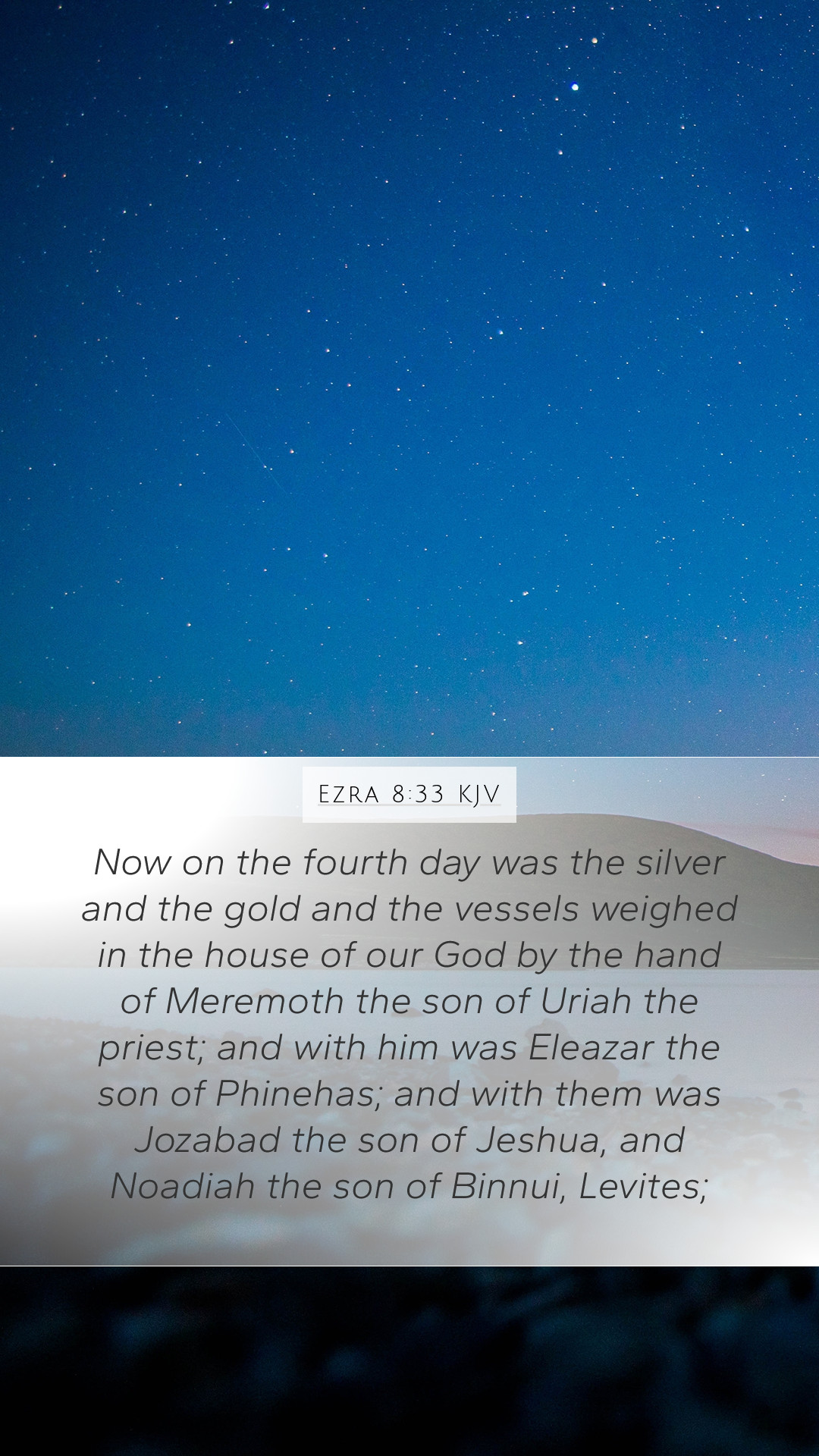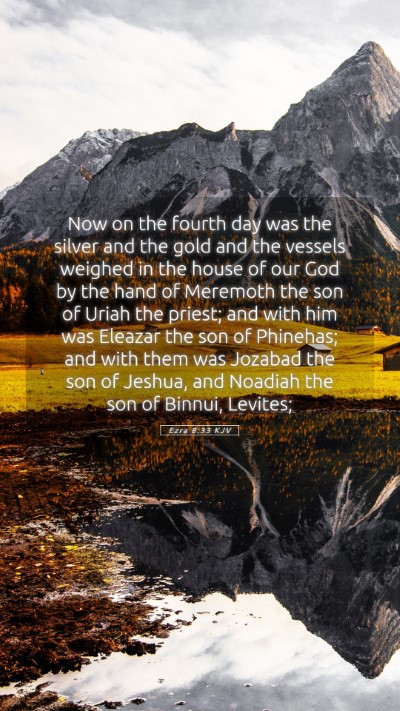Bible Verse Interpretation: Ezra 8:33
Understanding Ezra 8:33: In this verse, we observe the careful accounting and distribution of offerings made to God during Ezra’s journey back from Babylon to Jerusalem. It provides insight into the seriousness with which Ezra and the exiles approached their sacred responsibilities.
Contextual Background
The book of Ezra chronicles the return of the Jewish exiles from Babylonian captivity. Ezra, a priest and scribe, was tasked with leading a group of returning exiles. His role was not merely administrative but deeply spiritual, as he sought to restore the worship of God in Jerusalem.
Key Themes in Ezra 8:33
- Accountability: The act of weighing the silver and gold emphasizes the importance of accountability in spiritual matters.
- Worship and Offerings: The offerings to the Lord illustrate the need for devotion and the proper approach to worship.
- Community Participation: This was a collective effort, showcasing the involvement of the entire community in the practice of their faith.
Bible Verse Explanations
Insights from Biblical Commentaries:
Matthew Henry's Commentary:
Matthew Henry highlights the care Ezra took in accounting for the silver and gold that was dedicated to the service of the temple. He underscores that this meticulousness was not only for administrative reasons but to ensure that the offerings were faithfully utilized for God's purposes. This illustrates a broader principle within Scripture: God's servants must handle sacred gifts with great care and responsibility.
Albert Barnes' Commentary:
Albert Barnes points out that the detailed accounting served to maintain integrity within the worship practices. He emphasizes that Ezra's leadership was characterized by transparency and diligence, which are vital for effective ministry. Barnes elaborates on the necessity of careful stewardship in all forms of service to God.
Adam Clarke's Commentary:
Adam Clarke provides insight into the historical implications of this verse, noting that the return to Jerusalem was a pivotal moment for the Jewish people. He discusses how this careful handling of funds was essential not only for building the temple but also for restoring the nation’s identity. Clarke also reflects on how the practices established by Ezra set a precedent for future generations in managing both spiritual and material resources.
Theological Insights
This verse encourages believers to consider the implications of their offerings and the necessity of transparency in their dealings. The precise nature of Ezra’s actions speaks to a larger theological principle regarding integrity in worship and respect for that which is dedicated to God.
Application and Reflection
Understanding the significance of Ezra 8:33 can deeply impact how individuals and communities approach their spiritual lives:
- Emphasis on Accountability: Reflect on how God calls us to be accountable stewards of our resources.
- Worship with Proper Intent: Approach worship and offerings with the right intentions and care, ensuring that they are pleasing to God.
- Community Involvement: Encourage participation in church activities, reflecting together on spiritual practices and communal responsibilities.
Related Bible Verses
To gain a fuller understanding of themes related to Ezra 8:33, consider these cross-references:
- Malachi 3:10: An encouragement toward faithfulness in tithing and offerings.
- 1 Corinthians 4:2: A reminder that stewards must be found faithful.
- 2 Corinthians 9:7: The principle of giving cheerfully and not reluctantly.
Conclusion
Ezra 8:33 serves as a rich verse for reflection on accountability in spiritual leadership, the weight of offerings made to God, and the importance of community in the worship of the Lord. Through the lens of various commentaries, one can find great depth and application in this brief verse.


